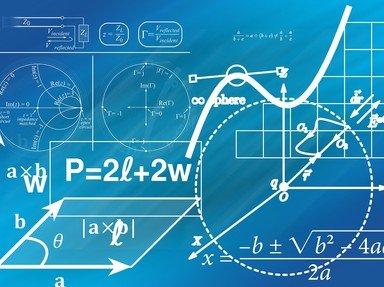Quiz Answer Key and Fun Facts
1. A composite number is a positive integer greater than 1 which is not a prime number. Which integer is the smallest composite number?
2. In biology, cells are the building blocks for organisms. Meanwhile, in chemistry, amino acids are the building blocks for protein. Now, in mathematics, what types of numbers are the building blocks for composite numbers?
3. The number 1 is not a prime number. So is it a composite number?
4. Let set A denote the set of prime numbers and set B denote the set of composite numbers. Are these 2 sets disjoint (non-intersecting)?
5. All even numbers greater than 2 are composite numbers.
6. Composite numbers can be further subcategorized. For example, a semiprime is a type of composite number which is the product of 2 similar or distinct primes. Which of the following numbers is NOT a semiprime?
7. Sphenic numbers are another type of composite number. By definition, a sphenic number is a positive integer which is the product of 3 distinct prime numbers. Which of the following is a sphenic number?
8. How many divisors does a sphenic number have? (Hint: A sphenic number is a positive integer which is the product of 3 distinct prime numbers. You can do some combinations and permutations here.)
9. A theorem states that every natural number which is greater than 1 can be expressed in a unique product of prime numbers. These natural numbers are composite numbers as well. What is the theorem? The Fundamental Theorem of ___.
10. Another classification of composite numbers is powerful numbers. A powerful number is a positive integer which all the prime factors are repeated. For example, 4 = 2 x 2 and 8 = 2 x 2 x 2 are both powerful numbers. Which of the following is NOT a powerful number?
Source: Author
Matthew_07
This quiz was reviewed by FunTrivia editor
crisw before going online.
Any errors found in FunTrivia content are routinely corrected through our feedback system.


